Candles have been cherished for centuries, not only for their ability to light up dark spaces but also for their spiritual significance. From ancient rituals to modern relaxation practices, candles play a vital role in connecting individuals with their inner selves and the divine. Let's delve into the spiritual benefits of candles.
1. Creating Sacred Spaces: Lighting a candle can instantly transform a room into a sacred space. Whether it's during meditation, prayer, or quiet reflection, the soft glow of a candle helps to center the mind and create an atmosphere conducive to spiritual connection.
2. Enhancing Mood and Atmosphere: Scented candles, especially luxury ones, carry fragrances that evoke different emotions and memories. Lavender can promote relaxation and stress relief, while citrus scents can uplift and energize. Burning these candles can help set the mood for spiritual practices or simply create a more serene ambiance in your living space.
3. Fostering Mindfulness: The act of lighting a candle and focusing on its flame can be a form of mindfulness practice. By directing our attention to the present moment, we can quiet the chatter of the mind and cultivate a deeper awareness of ourselves and our surroundings.
4. Symbolism and Intention Setting: Lighting a candle with a specific intention in mind can be a powerful spiritual practice. Whether it's to manifest abundance, send healing energy to a loved one, or simply express gratitude, the act of lighting a candle can symbolize the initiation of that intention into the universe.
5. Connecting with the Divine: Across various spiritual traditions, candles are used as symbols of illumination and enlightenment. Lighting candles during religious ceremonies, rituals, or prayers is a way of inviting the presence of the divine into our lives and acknowledging the sacredness of the moment.
6. Cultivating Inner Peace: In today's fast-paced world, finding moments of inner peace is essential for overall well-being. Taking time to light a candle, breathe deeply, and center ourselves can provide a much-needed respite from the stresses of daily life, allowing us to reconnect with our inner selves and find balance.
In conclusion, the spiritual benefits of candles, especially scented candles and luxury varieties, are multifaceted. Whether used for relaxation, meditation, or spiritual rituals, candles have the power to uplift the spirit, enhance mindfulness, and foster a deeper connection with the divine. So the next time you light a candle, take a moment to appreciate not only its soft glow but also the profound spiritual significance it holds.
Don't miss the related blogs
FAQs
Q. What are the spiritual benefits of lighting candles?
Lighting candles during meditation, prayer, or spiritual practice can help enhance focus and create a calming atmosphere. Candles are often used to symbolize the presence of divine energy, bring clarity, and create a space for reflection, relaxation, and spiritual healing.
Q. How do candles help in meditation?
Candles act as a focal point during meditation, allowing the mind to concentrate on the flame. This helps eliminate distractions, encourages mindfulness, and fosters inner peace. The warmth of the light can promote a sense of tranquility and deepen the meditative experience.
Q. Can scented candles enhance spiritual practices?
Yes, scented candles can enhance spiritual practices by adding a sensory element to rituals. Scents like lavender, frankincense, and sandalwood are known to have calming or purifying properties that can help in relaxation, grounding, and raising spiritual awareness during ceremonies or meditations.
Q. What role do candles play in energy cleansing?
Candles are used in energy cleansing rituals to dispel negative energies and invite positive vibrations. The flame symbolizes light and transformation, while the act of burning a candle can purify a space, body, or mind, allowing for emotional and spiritual renewal.
Q. How do different candle colors influence spiritual practices?
Different candle colors are believed to attract specific energies. White candles symbolize purity and protection, while green is associated with healing and growth. Red candles bring passion and vitality, and blue candles enhance tranquility and communication, making each color meaningful in spiritual rituals.
Q. Can candles be used in prayer rituals?
Yes, candles are frequently used in prayer rituals to symbolize hope, faith, and divine presence. Lighting a candle during prayer is a way to set intentions, honor deities, or seek guidance. The flickering flame is seen as a connection between the physical and spiritual realms.
Q. What is the spiritual significance of candle flames?
The flame of a candle represents the element of fire, which is tied to transformation and purification in many spiritual traditions. A candle's flame is seen as a beacon of light in the darkness, symbolizing enlightenment, inner strength, and spiritual guidance.
Q. How do candles create a sacred space?
Lighting candles in a space helps shift the energy, making it feel more sacred and serene. The warm glow of a candle can cleanse negative energy, invite peace, and create an ambiance that encourages introspection, making it ideal for meditation, prayer, or other spiritual practices.
Q. Can candles be used for manifestation?
Yes, candles are often used in manifestation rituals. The act of lighting a candle while focusing on a specific intention or goal is believed to amplify one's desires and send those energies out into the universe. Candle magic is practiced to attract love, prosperity, healing, and personal growth.
Q. How do scented candles affect your mood and spiritual well-being?
Scented candles can affect both mood and spiritual well-being by triggering positive emotional responses. Essential oils used in scented candles, like lavender for relaxation or eucalyptus for clarity, can uplift the spirit, reduce stress, and foster a balanced state of mind for spiritual growth.













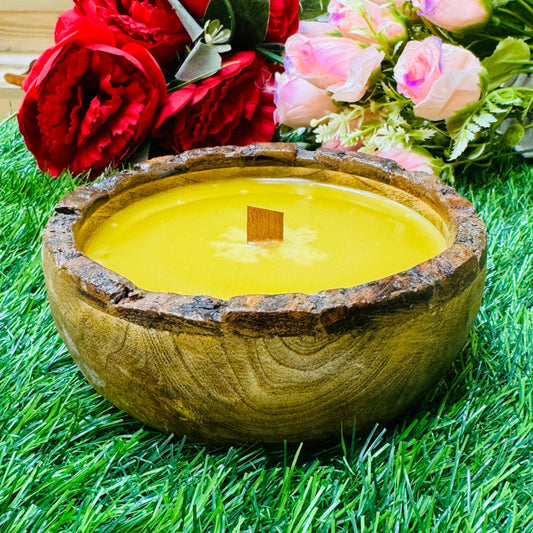





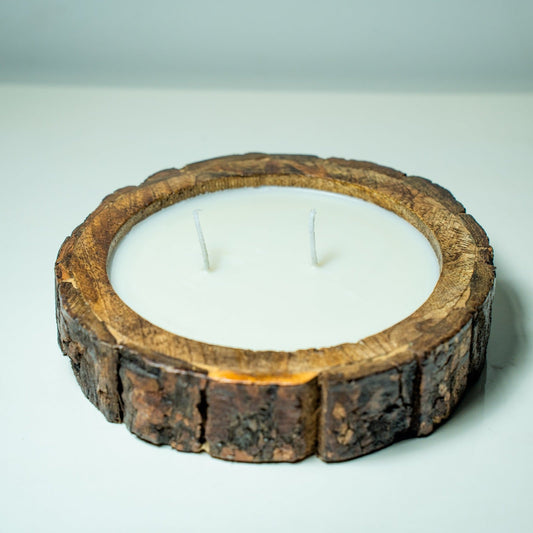



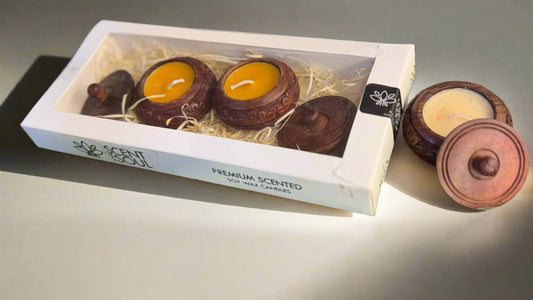
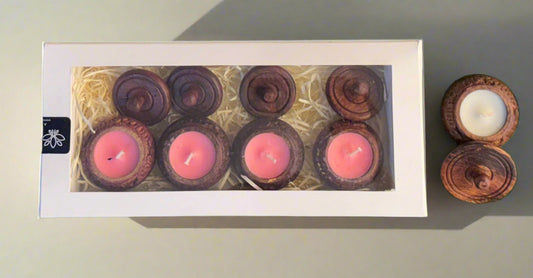
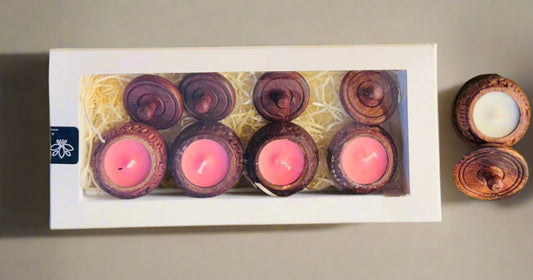










 Whatsapp us!
Whatsapp us!